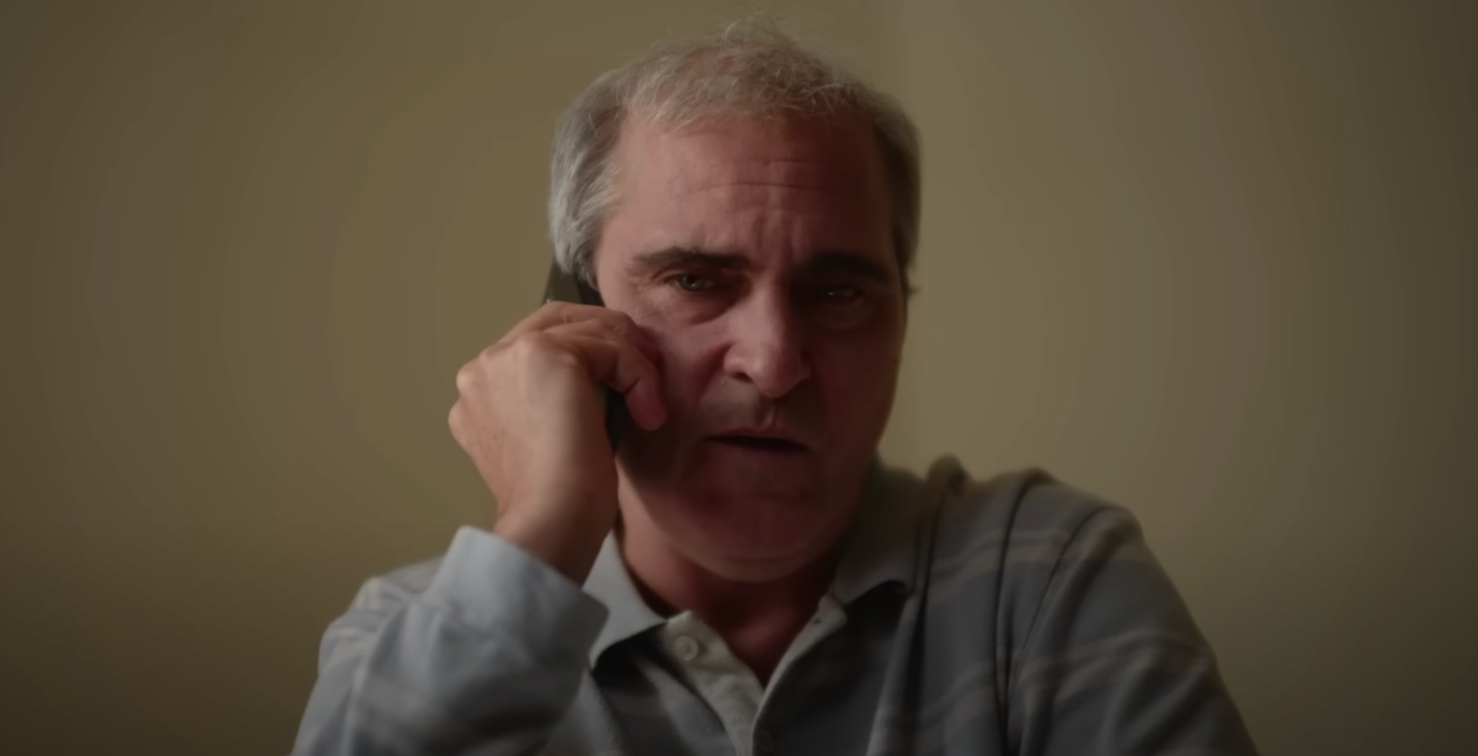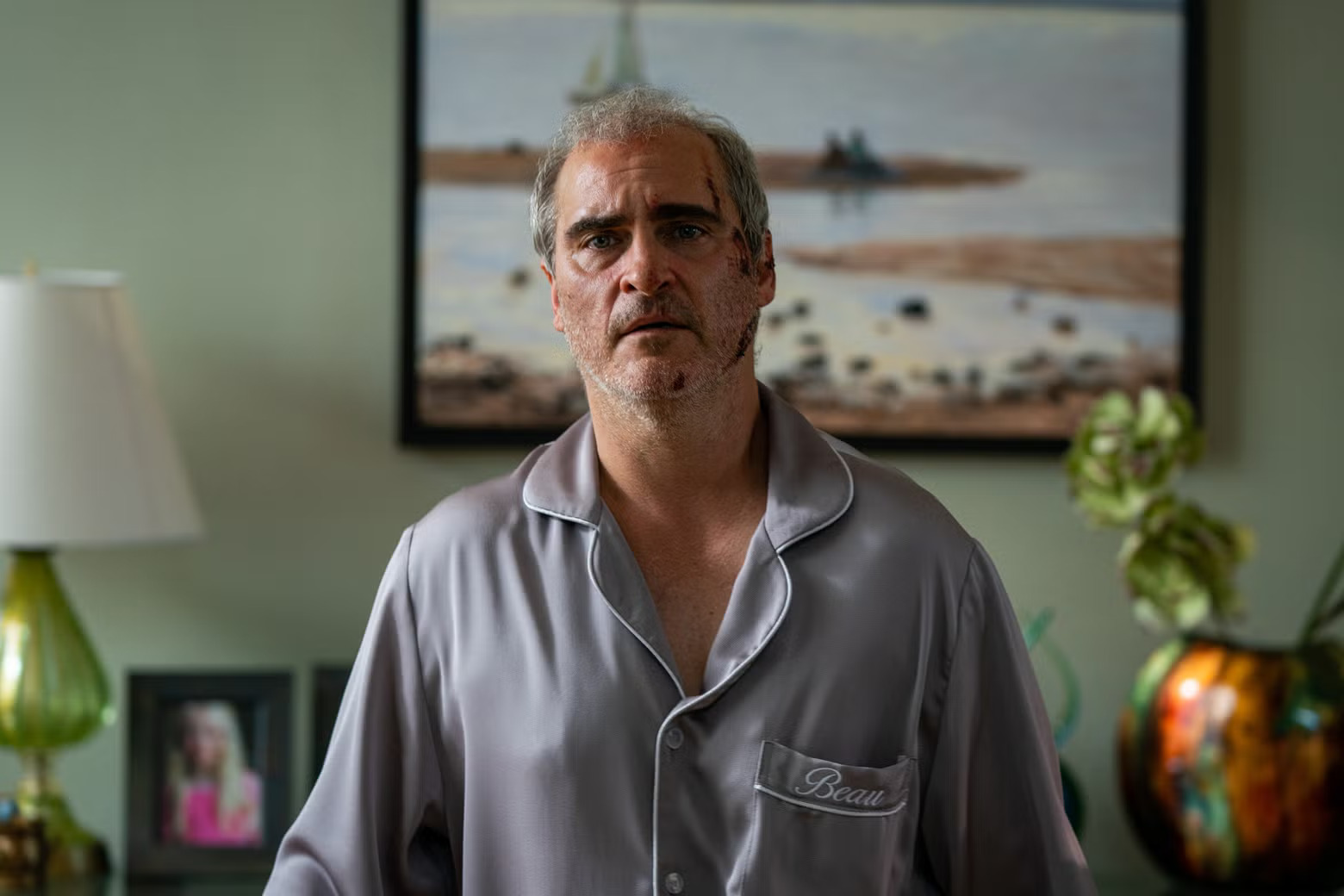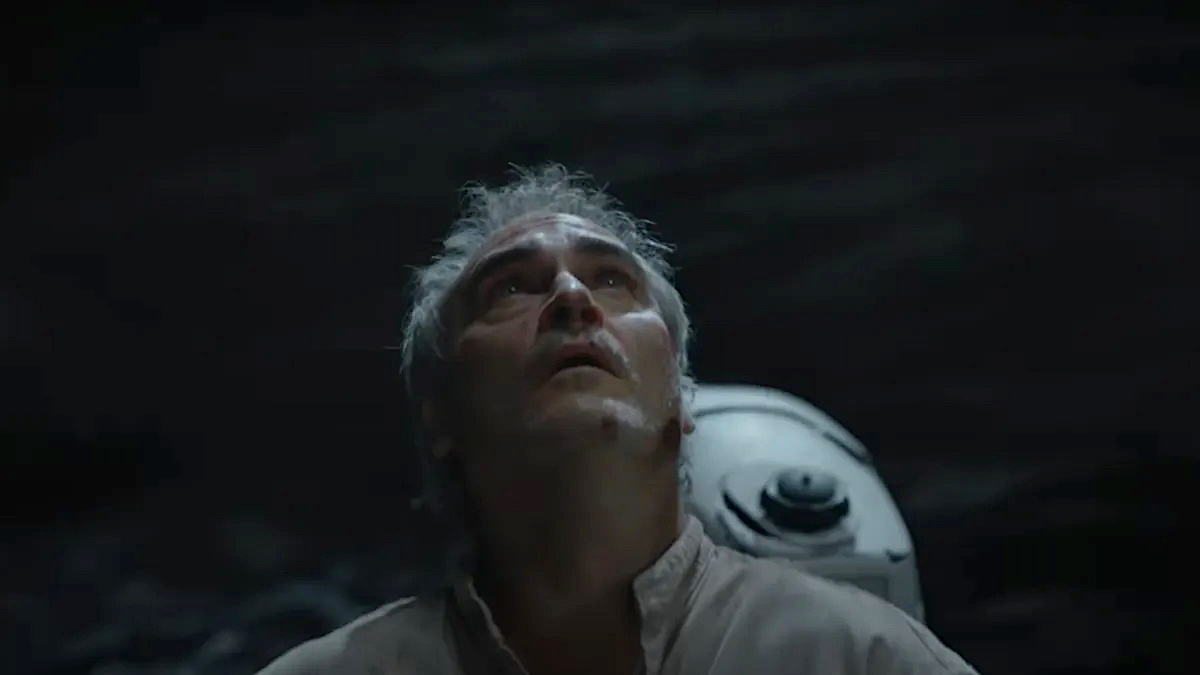Ari Aster’s Beau Is Afraid is one of the most surreal and unsettling films of the year, featuring a finale that leaves audiences bewildered. The film follows Beau, played by Joaquin Phoenix, as he navigates a series of increasingly bizarre and anxiety-ridden events after the supposed death of his mother, Mona. The conclusion sees Beau trapped in a watery amphitheater, facing judgment for his perceived failures, before ultimately succumbing to the depths in a visually and thematically striking sequence.
One of the most shocking twists in Beau Is Afraid is the revelation that Mona faked her own death. Initially, Beau is led to believe that she died after a chandelier fell and beheaded her. However, it is later revealed that Mona staged the event as a test to see if Beau truly cared about her.
Feeling unappreciated despite all she had done for him, she sought to confirm his neglect. When Beau fails to arrive in time for her funeral, Mona interprets it as final proof of his ingratitude, reinforcing her long-standing belief that he is a disappointment.
A recurring question throughout Beau Is Afraid is the nature of reality. The film blurs the line between what is happening in Beau’s mind and what is objectively real. His overwhelming paranoia, the feeling of constantly being watched, and the exaggerated threats surrounding him suggest that much of what he experiences may be projections of his own anxieties. The surreal nature of the film invites interpretations that much of the story is Beau’s subjective reality, shaped by his fears and psychological turmoil.

Grotesque Fears, Parental Control, and the Surreal Symbolism of Masculinity
One of the film’s most disturbing moments occurs when Beau discovers a grotesque, penis-shaped creature in his attic, which is implied to be his father. Throughout the movie, Mona tells Beau that his father died on the night of his conception due to a heart murmur.
The monstrous imagery could symbolize Beau’s fear of manhood and sexuality, deeply ingrained by his mother’s manipulations. Whether the creature is real or metaphorical, it represents Beau’s inability to reconcile his own identity and masculinity.
In a surreal sequence, Beau imagines himself living a life he never had, with a wife and children. However, even in this dream, he is accused of being selfish and difficult to find. The sequence reflects his deep-seated guilt and fear of failure, particularly in relationships. This imagined life underscores his longing for freedom and happiness, while also highlighting his belief that he is ultimately unworthy of either.
The film’s ending is ambiguous. After strangling his mother, Beau attempts to escape via boat, momentarily feeling free. However, he is soon trapped in an amphitheater where he faces judgment from his mother, her lawyer, and an impassive audience.
Overwhelmed by guilt, the boat explodes, and Beau drowns. His struggle in the water echoes the film’s opening birth scene, suggesting that he is metaphorically swallowed by his mother’s influence once again. Whether he physically dies or not, Beau’s fate symbolizes his complete surrender to the forces that have controlled him all his life.
Elaine’s sudden death during intercourse with Beau plays into his deep-seated fear that sex is fatal—a belief implanted by Mona’s lies about his father. Her death could be seen as a manifestation of his psychological trauma, reinforcing the idea that Mona’s warnings were correct. It suggests that Beau’s fears have the power to shape reality, trapping him in a self-fulfilling prophecy.

A Surreal Critique of Toxic Motherhood and the Burden of Parental Control
At its core, Beau Is Afraid is a critique of toxic parent-child relationships, particularly the paralyzing effects of a controlling mother. The film explores how overbearing parenting can instill lifelong anxiety and guilt, preventing an individual from ever truly growing independent. Mona’s extreme expectations and manipulations make it impossible for Beau to ever feel free or worthy of love, illustrating the devastating consequences of emotional abuse.
The ending of Beau Is Afraid has been divisive among critics and audiences. While some praised its dark humor and surreal execution, others found it exhausting and overly ambiguous. The film struggled at the box office, earning only $12.3 million against a $35 million budget. Critics such as Mark Kermode and Nick Allen offered mixed reviews, with some finding the ending thematically powerful, while others felt it risked self-parody.
Ari Aster’s previous films, Hereditary and Midsommar, also conclude with protagonists being consumed by forces beyond their control. However, Beau Is Afraid leans more into absurdist horror-comedy rather than pure tragedy. While Hereditary ends with Peter’s fate sealed by supernatural forces and Midsommar grants Dani a twisted sense of acceptance, Beau Is Afraid offers no such catharsis. Instead, Beau’s fate is both grotesque and darkly comedic, cementing the film as Aster’s most surreal and polarizing work yet.



